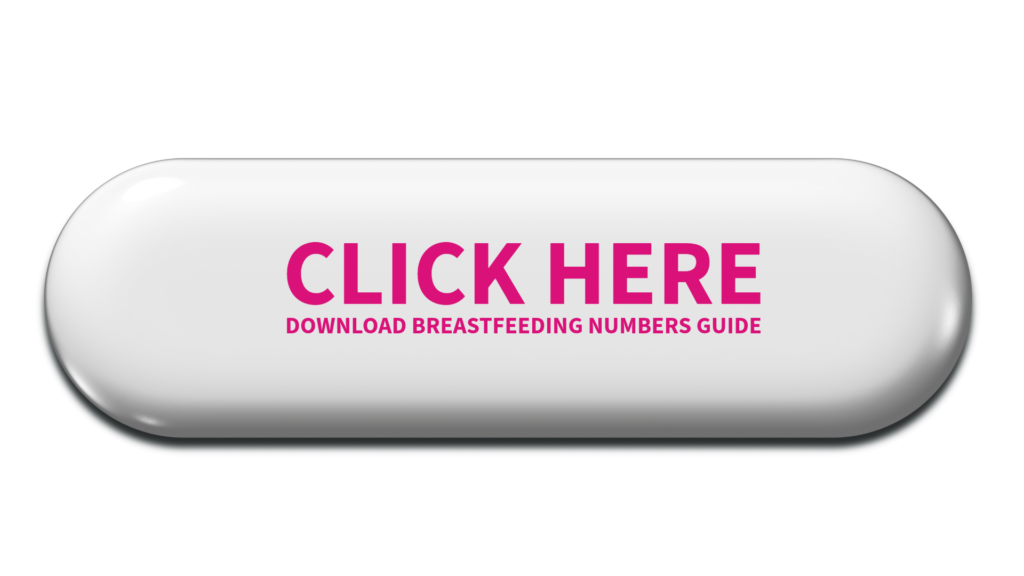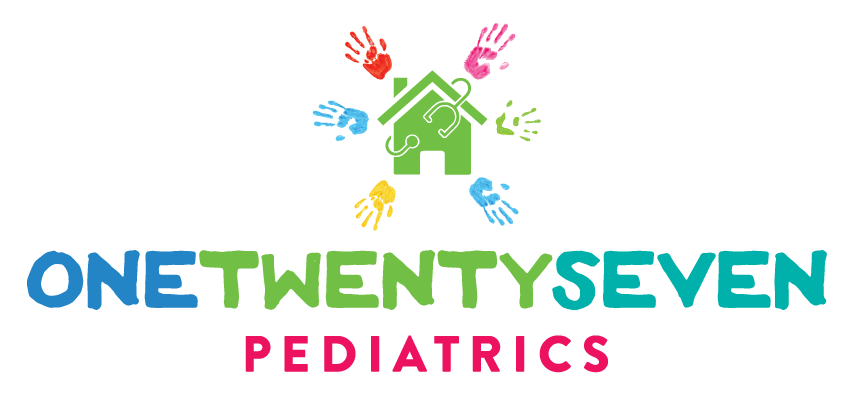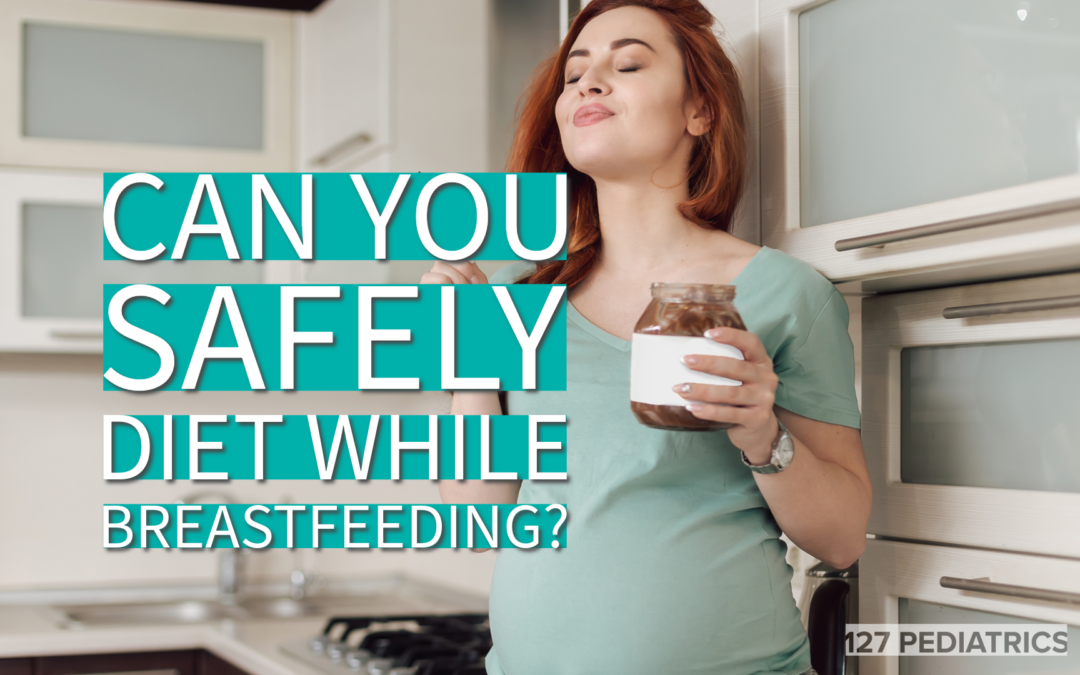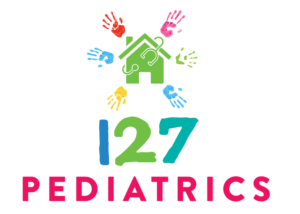Many new mothers want to know about how to safely diet while breastfeeding.
While, becoming a new mother is joyous, it is also a challenging experience. Some mothers feel like they lose a little bit of themselves in this stage of life. You may feel like you have very little control over things that you once mastered well. As a result as you navigate the journey of motherhood, you may find yourself wanting to shed the pregnancy weight.
Unfortunately, the feeling of needing to “bounce back” after giving birth is a real pressure that many women feel. Loss of your baby weight is one way that may make you feel better about yourself. However, I am here to tell you don’t need to bounce back by losing your baby weight. And while it is not always necessary to lose that extra weight during breastfeeding, there are safe ways to approach a healthy weight while breastfeeding.
Although, I dislike the word “diet” and all of its connotations, healthy eating while breastfeeding can help you to shed some of the extra pounds.
In this article, we will explore the guidelines and considerations for dieting while breastfeeding, ensuring that you can achieve your health and wellness goals while still providing the vital nutrition your baby needs.

Six Safe Ways to Diet While Breastfeeding
- Consult with your health professional: Before starting any diet or weight loss program, it is important to consult with your health care provider. They can evaluate your overall health and provide personalized advice based on your specific health issues.
- Focus on nourishment, not restriction: Most importantly, I advise you to approach dieting while breastfeeding with a focus on nourishing your body rather than restricting calories. Being a mother to a new baby is hard work and your body needs sufficient energy. It takes energy and nutrients to produce breast milk. These extra calories meet both your needs and your baby’s needs. Opt for nutrient-dense foods, such as fruits, vegetables, whole grains, lean proteins, and healthy fats. Prioritize quality over quantity and aim for a balanced diet.
- Gradual weight loss: Rapid weight loss can negatively impact your milk supply and overall health. I recommend that all breastfeeding mothers who want to lose weight aim for a gradual weight loss. This means that you can lose around 1-2 pounds per week at most. This slow and steady approach is safest for both you and your baby. This gradual weight loss will allow your body to adjust and maintain a healthy milk supply. Remember, postpartum weight loss is a gradual process and requires patience and consistency.
- Stay hydrated: Hydration and fluid balance is extremely important for breastfeeding mothers. Drinking enough fluids is essential for both your overall health and milk production. Breast milk is 80% water. Intake of extra fluids will support the production of breast milk as well as supply your body’s needs.
- Monitor your baby’s cues: While on a diet, you should pay close attention to your baby’s hunger cues and output. If you notice any changes in your baby’s behavior or feeding patterns, such as decreased diaper output or fussiness, it may be a sign that your milk supply is at risk. This is likely due to overly aggressive calorie restriction. If this occurs, it may be necessary to re-evaluate your diet plan and seek guidance from a lactation consultant.
- Be mindful of your mental health: It is common for new mothers to experience postpartum mood disorders, such as postpartum depression or anxiety. A focus on weight loss can sometimes exacerbate these conditions. In addition to the giant hormone shift that occurs postpartum, the added stress of not achieving your goal of weight loss can make you feel down or anxious. Listen to your body and be kind to yourself. If you find that dieting is negatively impacting your mental well-being, consider abandoning your plan to lose weight and/or seek support.
Don’t Lose Weight Too Quickly
Rapid weight loss can potentially lead to a decrease in milk supply. Your body needs energy to fuel itself as well as support breast milk production. In fact, you need approximately 300- 500 extra calories per day above your normal calorie needs in order to sustain breastfeeding.
Additionally, quick and extreme weight loss can also affect the composition of breast milk. It may lead to a decrease in the fat content and other key nutrients in your breast milk.
Moreover, rapid weight loss can have detrimental effects on your overall health and well-being. An extreme calorie deficit will result in feelings of fatigue, weakness, and irritability. These feelings make it more difficult to care for your new baby.
Lastly, weight loss while breastfeeding is not necessary. Your body has been through so much throughout pregnancy, birth and now breastfeeding. Give yourself some grace and focus on eating a healthy diet of lean meats (or other protein foods) and other nutrient-rich foods like fruits and vegetables. Additionally, have healthy snacks at the ready in order to keep your energy levels up throughout the day.
Avoid Restrictive Diets
As a physician, I think that all people should avoid restrictive diets, but I feel that this is especially true for breastfeeding mothers. Ease of weight loss varies from person to person, but restriction is one of those things that can lead to unintended consequences.
Diets to avoid as a breastfeeding mother:
- Intermittent fasting
- Carnivore diet
- Keto
- Juicing
These are just a few examples of extreme diets to avoid. I feel like they come up with a new way to lose weight every day, so this list is definitely not exhaustive or complete.
What about Weight Loss Medications?
With the increasing popularity of the new weight loss medications in the GLP-2 category, more and more often I am getting this question from breastfeeding mothers. Medications like Wegovy, Ozempic or generic semaglutide are extremely popular right now. This is for good reason. Certain people respond really well to these medications and lose a tremendous amount of weight which helps their overall health improve.
Unfortunately, these medications have not been studied extensively in the breastfeeding population. As a general rule, we know that injected medications and high molecular weight medications do not transfer into breast milk well. Semaglutide fits both of these conditions. Therefore, the medication is not likely to enter breast milk and get to the baby. However, Infant Risk recommends using these medications while breastfeeding with caution. This is because we do not fully understand how the hypoglycemic ( blood sugar lowering) aspect of the medication will affect the breastfeeding baby.
Additionally, these medications have potential side effects that can decrease breast milk production. Patients on these medications often complain of nausea and reflux. Also, these medications can greatly reduce your desire for food and/or to drink fluids. This can lead to many problems for the breastfeeding mother and her breastfed baby. Therefore, as a breastfeeding expert, I recommend waiting to use this type of medication until your baby is fully weaned.
Breastfeeding Mothers Need More Calories and Nutrients
As we talked about earlier, mothers do require additional calories while breastfeeding to support the nutritional needs of both themselves and their baby. Breastfeeding can burn an extra 300-500 calories per day, depending on the frequency and duration of nursing sessions.
However, it is important to note that the focus should be on consuming nutrient-dense foods rather than simply increasing calorie intake. Opt for a balanced diet that includes a variety of fruits, vegetables, whole grains, lean proteins, and healthy fats. These foods provide essential nutrients and energy to support both the mother and baby’s health.
Additionally, as a breastfeeding mother, you need to not only focus on eating a variety of foods, but you may need to use supplements to give your body additional support. I recommend that all breastfeeding mothers continue to take their prenatal vitamin throughout the duration of feeding their babies. In addition, mothers who follow a vegetarian or vegan diet should take vitamin B12 supplements.
Vitamin D supplements are also important to consider. Both the breastfeeding mother and the breastfed infant require extra vitamin D. You can supplement your baby with 400 IU of vitamin D per day in the form of liquid drops or you can take vitamin D supplements at a dose of 6400IU per day. There is a study that shows that if a breastfeeding mother consumes this amount of Vitamin D, it will enter her breast milk and provide an adequate infant dose.
How Can 127 Pediatrics Help?
As a physician who is board certified in breastfeeding medicine, I am passionate about helping women to succeed with breastfeeding. I believe that this starts with a great foundation of breastfeeding knowledge. In addition to free resources, we offer in person lactation consults in the Colleyville, Texas area. In addition, we have online breastfeeding education options coming soon. Click the button below to download the breastfeeding numbers guide and join our email list to keep up to date on our offerings.

This article is for information purposes only. It is not to be interpreted as medical advice.
© 127 Pediatrics, March 2024

Dr. Wadley is a board certified pediatrician and breastfeeding medicine physician. She opened 127 Pediatrics in July 2018 as a way to provide a different option for pediatric and lactation care to families in the Dallas/ Fort Worth area of Texas. Additionally, she is developing an online breastfeeding coaching program to help breastfeeding mothers outside of her local area.


